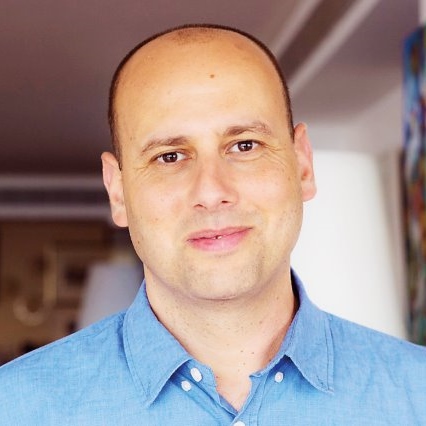
OpEds

Seventy one is the ‘new thirty’ for Israel
ZVIKA “BIKO” ARRAN
That’s the way President Reuven Rivlin painted the picture of Israeli society a few years ago, and its current challenge.
The confrontation this week reminds us of another part of the updated Israeli story: the Iron Dome (Kipat Barzel). This anti-missile technological breakthrough saved the lives of so many innocent civilians in the past week, and over the past few years.
That’s the essence of the Israeli story today: one country, different tribes, unity that emerges from threats and, of course, a great Yiddishe kop (Jewish brain) that is able to come up with brilliant inventions.
Israel is now a grown up, mature country. Seventy-one is a young adult – it is the “new 30” of countries. Israel may be tiny, but it is a superpower in cyber and water technology, and it is the start-up nation. It leads international lists for quality of life, happiness, growth, research, development and investment, birth rate, life expectancy, and of course, the number of lawyers per capita.
So, we should feel proud at the 71st anniversary of the state of Israel. We are all shareholders, whether we bought stocks or not. We’re all partners, investors, and observers of this miracle. Israel is indeed a miracle of our time.
We have realised the dream of generations – the return of Jews to Zion. This small, threatened community struggled, fought and, from the ashes of the Shoah, succeeded in swiftly building an advanced country.
However, those charts, statistics, and rankings are of minor importance. Israel is first and foremost a safe homeland to raise one’s kids. Israel is a spectacular land to travel and hike. Israel is full of vibrant people, streets, and sites to experience, and provides an open landscape to invent and initiate.
However, the dreams of Theodore Hertzl and other Zionists weren’t completely fulfilled. Sometimes it is better to dream and in so doing yearn for Jerusalem when you pray three times a day than it is to argue about cleaning the city’s dirty streets.
After 71 years of independence, the Israeli photo album is far from portraying a perfect family.
In short, especially on this festive Yom Ha’atzmaut, it’s important to point out some concerns and worries.
Israel has “regular” country issues, like red-tape, infrastructure concerns, corruption, and education problems, to name a few. Naturally, the public expectation regarding these topics is high.
Israel also has some special issues. Its borders are not yet stable. It is also still under constant threat of violence. It has no constitution, and the rules of its democracy are not yet consolidated.
Being the only Jewish nation-state around the world conflicts sometimes with democratic values. But give Israel the breadth of about 200 years of independence – as old democracies like France, Canada, and the United States have had – and I believe it will overcome and fix these unique problems.
Then, there are the challenges that are particular to Israel alone. If we believe Israel should be orr lagoyim (a light unto the nations) in terms of taking on extra responsibility, not superiority; if we feel that the meaning of am segula (the chosen people) is added duty, not added value; then we still have a long walk to freedom and fulfilment.
Israel must be a model society (chevrat mofet), not an average country. Israel cannot lead in poverty and social gaps. It must be an example to all of a just and equal community. Israel cannot lag behind in education, which is a core Jewish value. Israel cannot be Jewish mainly in the less-important things, and not Jewish at all in the most important things.
Proper (ethical) behaviour precedes the Torah. Israel cannot “…wrong a stranger or oppress him, for you were strangers in the land of Egypt” (Exodus, 22, 20-21).We have to be above reproach!
Rivlin made condolence calls to all the families of the rocket attacks this week. He visited the family of Ziad Alhamada in a Bedouin village. Where others skipped or disregarded the Arab victim, the president once again reminded us of what is expected of us and our challenges.
Because of our huge success as a strong economy, military power, and ancient civilization, we must be more courageous, bold, and daring. We must let go of our Holocaust victimhood. We must get rid of the David versus Goliath state of mind.
Recognising that we are no longer a small, weak country, Israel should be more self-confident, open to self-criticism, and Gemara-type thinking. We cannot be afraid of disputes, but rather seek out arguments in order to improve ourselves. We need to build a society based on inclusion, open discourse, positive, and constructive approaches, not terror.
Out of our prosperity and success, we must have more compassion and solidarity. Out of innovation and being the start-up nation, we need to ensure sustainability over the long-term. Out of security in our homeland as Jews, we have to be more accepting, tolerant, and flexible.
Israel can deal with the regular and special obstacles. We need to focus on how to create a Jewish sovereignty, and run it without internal strife and milchemet achim (a war between brethren).
In the coming decade, Israel will reach 80 years of independence. It’s up to us to move from the desert and settlement generation that inherited the land to a new generation of independence. And we will.
Zvika “Biko” Arran is an Israeli social entrepreneur, lawyer, policy advisor, and ex-journalist. He was the founding chief executive of Tanakh 929, Midot, a rating service of Israeli charities and other organisations.
Biko recently moved to Johannesburg with his wife, Liat, and his four sons. Liat is the new director of the Israel Centre.




